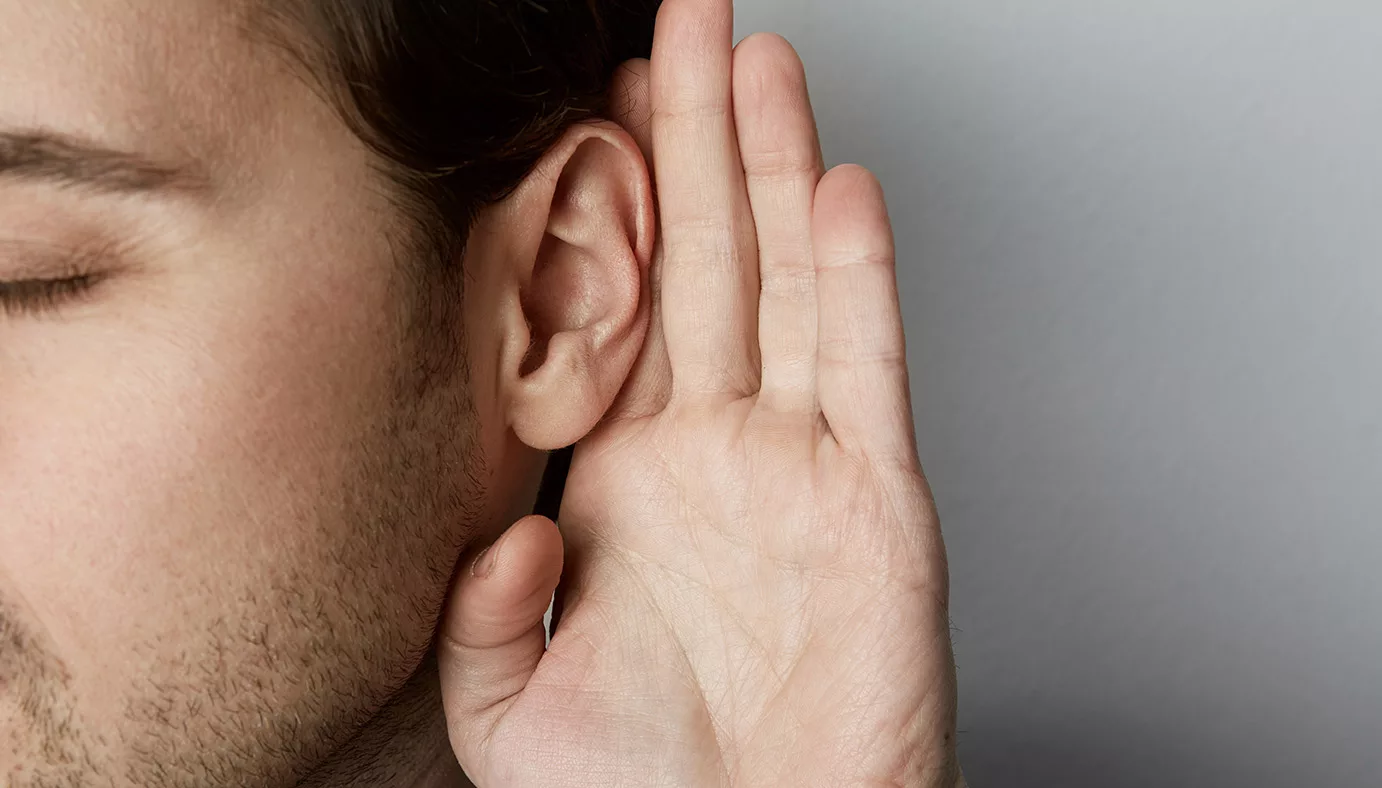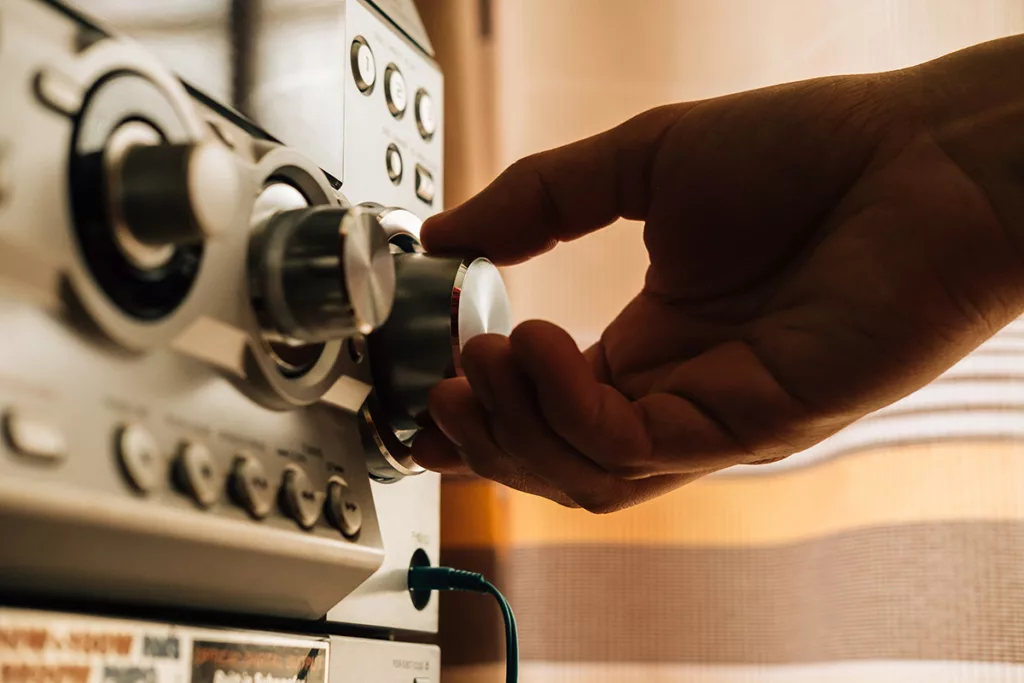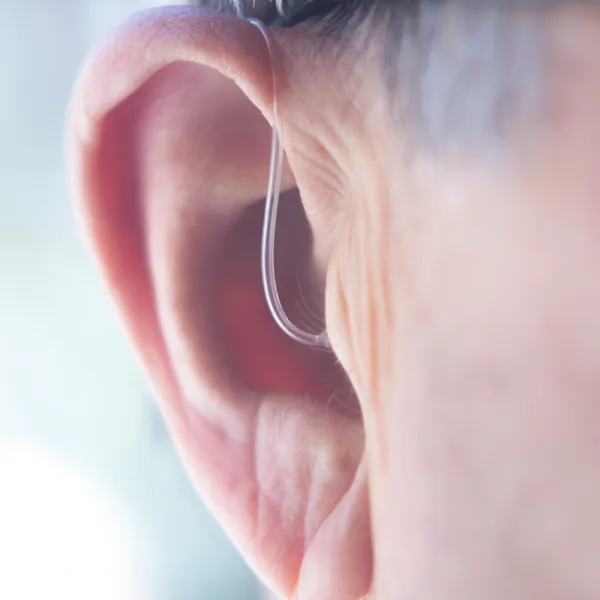
Hearing loss affects millions of people worldwide. Except in the cases of congenital hearing loss, trauma-based hearing loss, and certain medical issues that cause sudden loss, most people lose their hearing gradually. There are six levels of hearing loss. At each level, more and more of the sounds you have become accustomed to hearing fade into the background. It is extremely important to take good care of your hearing, so that your personal soundscape doesn’t get more and more muted. In this article we will help you understand the various levels of hearing loss and what they may mean for you in your everyday life.
What are the Levels of Hearing Loss?
Understanding what level of hearing loss you have is the first step in finding the best hearing aids for your needs and lifestyle. Hearing loss is categorized into levels based on its severity, which is measured using decibels (dB). Decibels are the measurement of the loudness, or volume of sounds. Your level of hearing loss is measured in the decibel range of the softest sounds you are able to hear.
The chart below outlines the six levels of hearing loss and the various decibel ranges of the softest sounds you can hear:
| Level of Hearing Loss | Decibel Range of the Softest Sounds You Hear |
|---|---|
| Slight | 16 – 25 |
| Mild | 26 – 40 |
| Moderate | 41 – 55 |
| Moderately Severe | 56 – 70 |
| Severe | 71 – 90 |
| Profound | 91+ |
What Sounds Can I No Longer Hear at Each Level of Hearing Loss?
Knowing what your level is can be a little abstract without understanding what that means in terms of what sounds you can and cannot hear. What conversations might you be missing out on? What activities might you avoid at various levels, because engaging in them is exhausting without having hearing aids to help you hear? Here are some examples as they apply to various types of sounds, common activities, and situations.
| Degree of loss | Sounds you can no longer hear without hearing aids |
|---|---|
| Slight | Mosquito buzzing away from your ear, light footsteps on carpet |
| Mild | Soft appliance hums, words or certain consonants, whispers at a distance |
| Moderate | Louder appliances, virtual or in-person dialog at low volumes |
| Moderately severe | Footsteps, barking, speech at any volume, car horns, doorbells |
| Severe | Sirens, smoke alarms, passing motorcycles |
| Profound | Alarms, firecrackers, aircraft engines, extremely amplified music |
Slight Hearing Loss
If your hearing loss is only slight, you won’t be able to hear sounds softer than 25 dB, which is likely unnoticeable, unless someone else points it out. For instance, they may hear a siren in the distance before you do. Other examples of slight hearing loss include not being able to hear light footsteps on carpet or a mosquito buzzing, unless it’s right next to your ear. You can still hear speech without a problem though, even at a whisper. With slight hearing loss, hearing aids are not necessary, and you can still fully engage in daily activities.
Mild Hearing Loss

With mild hearing loss (26-40 dB), you still may not notice it. You are still able to follow conversations in person or on the phone, and you can hear the TV or other entertainment at a standard volume. The following symptoms are commonly the first signs that you may be experiencing mild hearing loss:
- You can’t understand whispered words from across the room
- You miss some consonants
- You may miss occasional words in the speech of people who speak softly or in a high pitch
- You can’t hear the wind or the soft hum of some household appliances
Most people don’t opt for hearing aids at this stage. However, if your occupation or pastime requires keen hearing, there are hearing aids that can bring your hearing back to a normal range.
Moderate Hearing Loss

With moderate hearing loss, you won’t hear some of the quieter sounds (41-55 dB) you used to before. Common household noises like the hum of your refrigerator, or a bird chirping outside a closed window are likely sounds you can’t hear without assistance. Even parts of sentences will be harder to hear when spoken at a normal volume, which can make effective communication a problem. If you notice that you can still engage in conversations but are asking people to repeat things more often, this could indicate possible hearing loss. If you believe you are experiencing any gradual changes in your hearing, schedule a hearing test at a clinic near you as soon as possible. Hearing aids are a great treatment option for moderate hearing loss and can fully restore those important sounds to you.
Moderately Severe Hearing Loss

Moderately Severe Hearing Loss (56-70 dB) will make a definite impact on your life, if left untreated. With this level of hearing deficit, you will still be able to hear smoke detectors in your home and sirens as they drive by, but things like voices or laughter at a normal volume will have faded. If you have moderately severe hearing loss you will also, likely, be unable to hear:
- Home appliances
- Footsteps
- Dogs barking
- Car horns
- Door bells or knocks on the door
- Speech at any volume
With untreated moderately severe hearing loss, you are missing more than just a few words in face-to-face conversations, and likely struggle with phone calls. Scarier still, without treatment this degree of hearing loss can even make it dangerous to drive or walk around busy areas. This, along with being frequently startled because you didn’t hear someone approach, can take a toll on the nervous system. Moderately severe hearing loss can also lead to isolation and depression. Thankfully, there are many hearing aid options available that offer a simple solution for moderately severe hearing loss. Custom hearing aids can even be fitted specifically to your ear for maximum comfort and effectiveness.
Severe Hearing Loss

With severe hearing loss (71-90 dB), a standard talking volume is completely inaudible. You may be able to hear someone shouting if they are at close range, but not well enough to understand the words. At this stage of loss, even some alarm bells and sirens are rendered silent, making safety a very real issue. Severe hearing loss can only be treated with the most powerful hearing aids. Otherwise most everyday sounds are inaudible. Fortunately, the latest technological advancements have made these hearing aid options quite discreet.
Profound Hearing Loss

When a person has profound hearing loss their world is essentially shrouded in silence as anything less than 91 decibels cannot be heard. They may be able to hear gunshots, firecrackers, explosions, sirens, or jet engines at close range, but motorcycles, loud music, heavy machinery, and people shouting will all fade away. Behind-the-ear (BTE) hearing aids are a common treatment option that is powerful enough to address profound hearing loss. They are designed with a durable plastic casing that rests discreetly behind the ear. These devices can also be equipped with more features and tend to have a longer battery life.
Why Treating Hearing Loss is So Important
Hearing loss can result in missing important information, misunderstandings over misheard words, and being deprived of the more subtle, beautiful sounds around you. Untreated hearing loss can lead to isolation, as you avoid certain, more challenging hearing environments and social events. Many recent clinical studies have even linked untreated hearing loss to increased instances of depression and, in older adults, dementia.
What Hearing Loss Levels Mean for You
At each stage of hearing loss, more and more sounds are lost, and with them, more and more activities are rendered either less enjoyable or even hazardous. With so much to gain from good hearing and so many things to lose, it’s a good idea to get a hearing test at the first sign that there may be a problem. At Audibel, we care about your hearing health. Our knowledgeable hearing health experts can test your hearing and provide the best solution for your hearing level, lifestyle, and health needs. We encourage you to take the first step to finding the personalized care you deserve by scheduling an appointment at any of our clinics located throughout the United States.







Have a question or Comment?